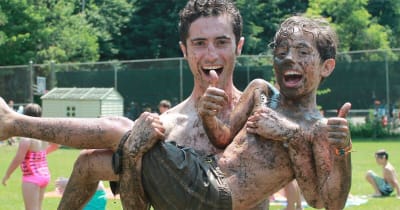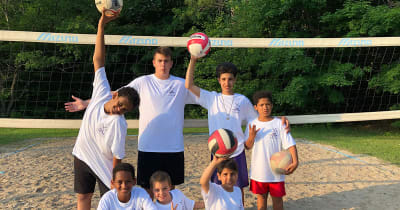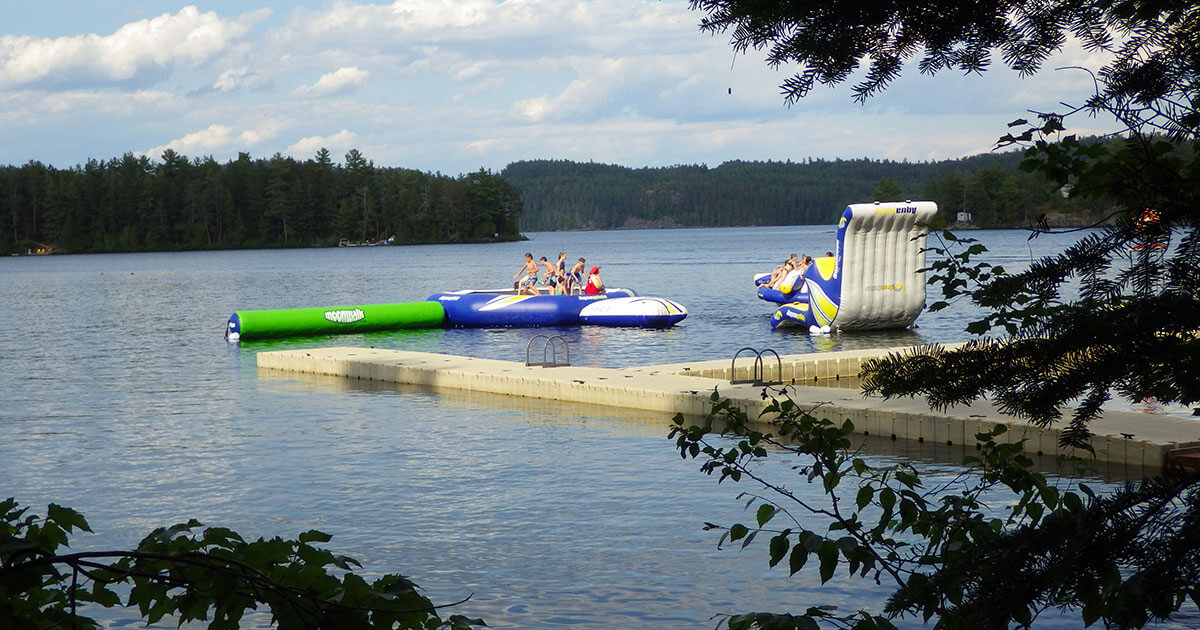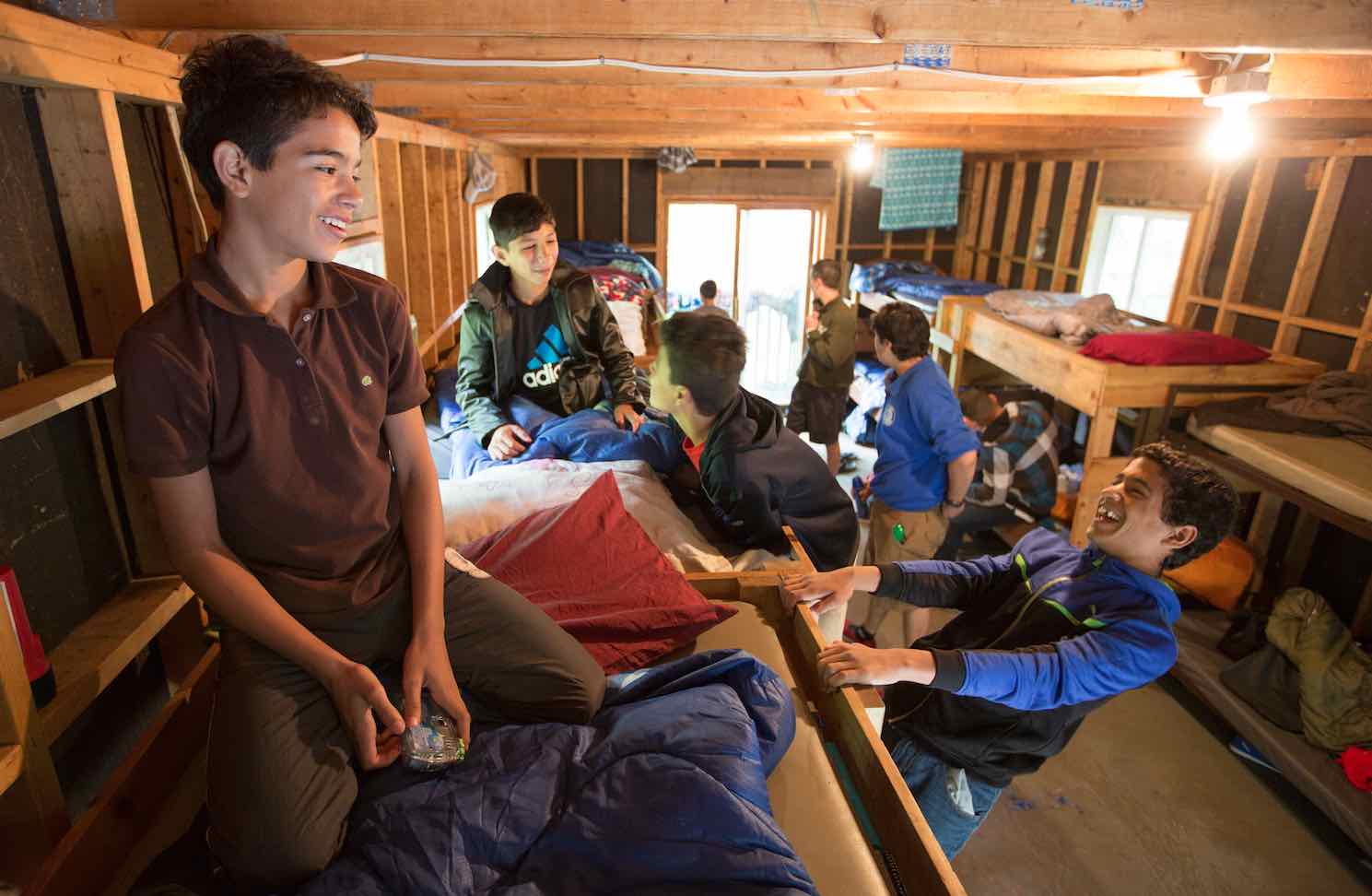
Springer was presenting to two families of new Canadians, the El Sajers and the Zalkhas, who had arrived from Syria the previous January by way of Lebanon. Through an interpreter and a PowerPoint presentation, Springer described a distinctly Canadian tradition: summer camp.
“I talked through the idea of camp,” she says, “from logistical—‘no, you won’t cook your own food’—to conceptual— ‘camp is a place to do things you don’t normally do … and to try activities you’ve never done before.’”
The camp concept can present a learning curve, even for those who don’t arrive at it from a first-hand experience of war. “With families coming from other parts of the world,” says Rudy Williamson, director of Camp Wenonah, “the idea of summer camp is already a foreign concept. Even the word ‘camp’ itself, if you’re coming from refugee camps, can mean something very, very different.”
For most Canadians it’s hard to imagine what these families had been through, though there were moments that hinted at it. After spending a month living in a hotel near Pearson Airport, both families had settled in Malton, Ontario. “Their dad told me that he’s never seen a place so beautiful as Malton,” says Springer. “I asked him what the best part of Malton is so far, and his answer was ‘no bombs!’”
Despite all of that, by the second showing of the PowerPoint slides, the parents were asking after the registration forms and the kids were laughing at the excitement of it all. They were going to camp.
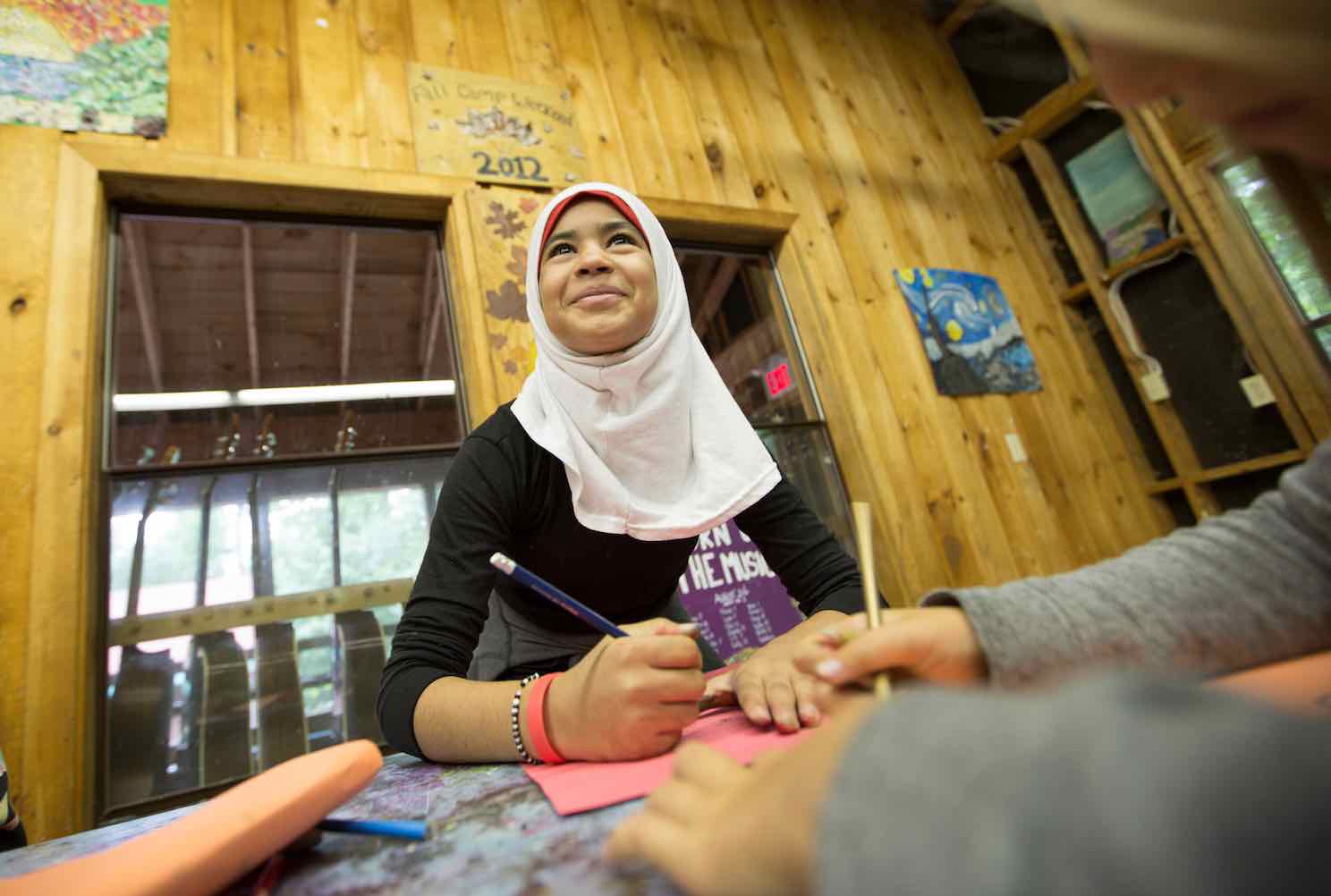
“They were all just so full of energy”
Springer is a producer with the CBC, and she had covered the arrival of refugees in that capacity, including work on a television documentary about that hotel near the airport. “I remember being shocked at the number of children there. They were all just so full of energy—tearing up and down corridors, playing in elevators and stairwells ... I remember wishing these kids had some formal programming. And things kind of progressed from there. I asked Jeff if it was possible to set aside some camper spots and he didn’t hesitate.” Jeff Bradshaw is executive director of Camp Wenonah, a camp near Bracebridge where Springer had been a camper and staff. He answered without a beat. “It was a ‘definitely.’”
Springer then turned to friends and neighbours within her Toronto community to help outfit the kids for camp: sleeping bags, duffle bags, incidentals. The needs were somewhat modest—Camp Wenonah was covering the cost of camp itself, so they only needed to cover supplies— and the effort was a very local one. When Springer talks about the supplies, she refers to them as “welcome kits.” And in the minds of those who contributed, “welcome” was truly the operative impulse. It felt less like a movement, and more like a pot luck dinner.
Campers are campers
And then, on August 29, they arrived at Wenonah. “Once you’re here,” says Williamson, “it’s pretty much an even playing field. You’re a kid at camp, and campers are campers.”
And they were. Mid-week, a day-long program was built around a series of Harry Potter-themed activities. One counsellor, playing the role of JK Rowling, was interviewed about her thoughts on camp life. “It was quite lovely,” she says in a clearly faux accent of a meeting with the student counsellors the night before. Other counsellors, dressed as Dementors, hid in the trees during a fast-paced, Potter-themed scavenger hunt.
While it’s just another day at camp, it’s easy to wonder what all of it must seem like to someone who, quite literally, has been dropped into this situation. There’s a lot of noise and activity because, well, it’s camp after all. Still, if anyone has any anxieties, it clearly isn’t the kids. They join in, off in all directions through the trees, around the cabins, skidding on the gravel pathway. One distracts a Dementor while another robs his pail of golf balls, the “eggs” that the campers are tasked to collect. It’s a clever bit of teamwork on their part, and it brings lots of smiles from campers and staff alike. If anything, what’s striking is how unremarkable it all is. The staff know very little about the children’s experience before or even after arriving in Canada, and that’s deliberate. “There’s not much recognition that these kids are any different,” says Williamson, “the staff members, obviously, aren’t making a big deal about it. We want them to be as integrated as possible.”
The campers from Syria do congregate a bit, both in the dining hall and during the activities, which is perhaps a function of their facility in English. An older teen arrived with them, a volunteer who himself is a new Canadian and who has a personal connection to the families of the campers. Still, they don’t cling to him in the way that, frankly, we might were we dropped into a situation that was as foreign to our experience as this must be to theirs.
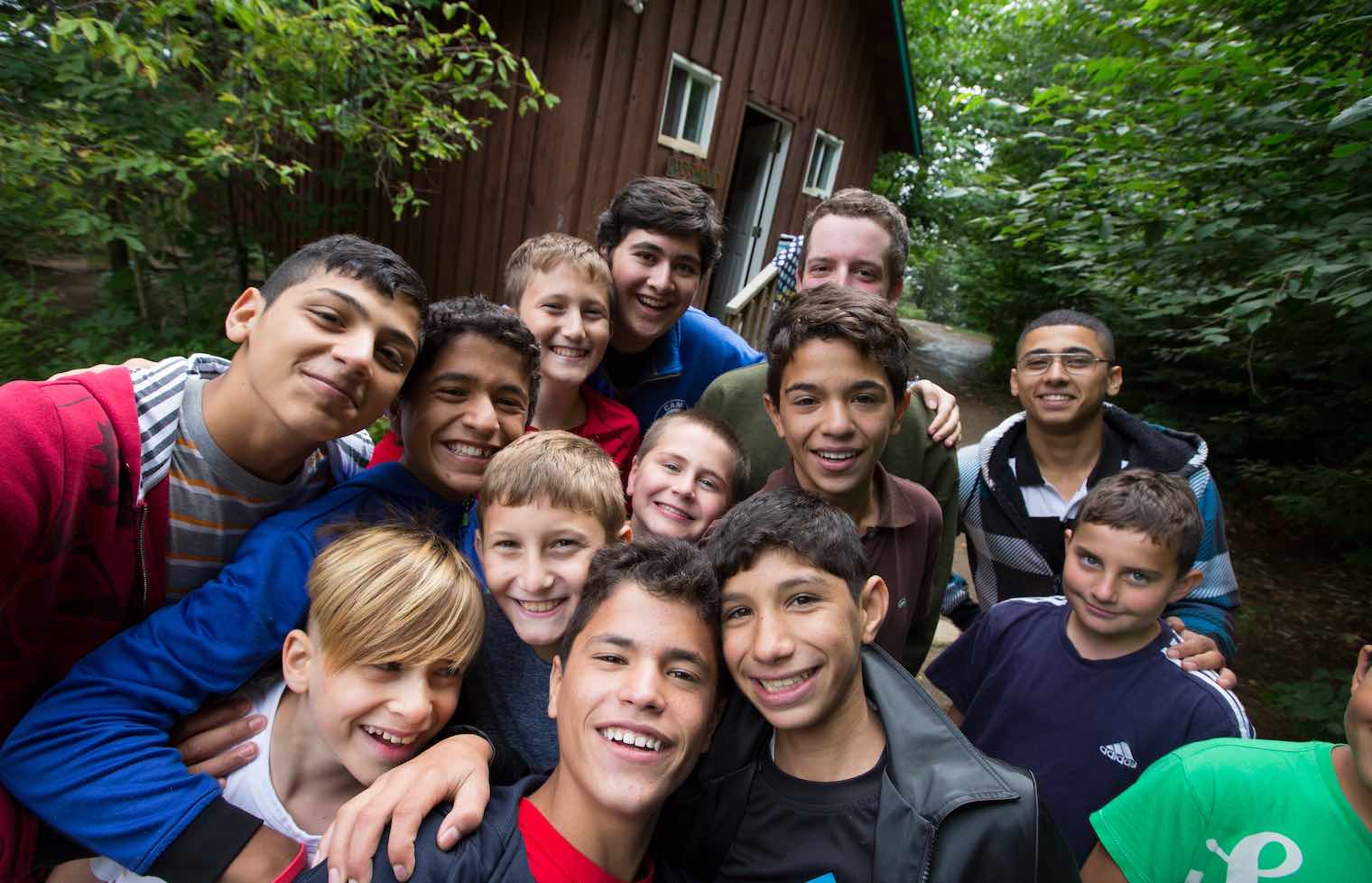
Why camp?
Wenonah isn’t the only camp that welcomed refugees last summer—Glen Bernard Camp hosted 26 campers from Syria—and they certainly won’t be the last. For Bradshaw and Jocelyn Palm, director at Glen Bernard, offering spaces for these campers is something of a no-brainer. For the camp, it’s an opportunity to provide an example to the campers as well as those outside the camp gates: it demonstrates that we all, to varying degrees, have something to offer. It also underscores the idea that these are people, after all.
Following on, the benefits of camp are the same for those who arrive from overseas as those who arrive from more local communities. It’s not about a week or two. It’s about how we think of ourselves, and how we relate to others.
“It just lets kids be kids,” says Bradshaw.
“I was imagining these kids being uprooted from their homes, their school, their friends, and the connectedness in their lives … camp is a place where they could be connected again. To a very different group of people, for sure, but a place where they can be connected and feel a sense of belonging within a community.”
It’s clear when speaking to him that he really means that in the broadest sense. This isn’t about changing a child’s summer, but about changing a child’s life. “Our approach to camp has always been to encourage people to think about a longer commitment. We’d rather have kids there for a longer term, and we would like to engage these families over the long term. Our hope is that they will come in the years to come. One boy is older, so too old to come as a camper, but we’d like to have him in our leadership program next year. So that’s something we’re working on, and hope we can make it happen.”
“My goal is to integrate those kids into longer sessions, so they can come for a period of two weeks and be comfortable at camp. We’re looking at re-engaging those particular children first, and then broadening out from there.”
He pauses, then adds, almost apologetically, “we think we can do some good stuff with this.”
Indeed, it seems that they already have.
•
—by Glen Herbert
- The top seven benefits of summer camp
- Rick Mercer: The meaning of summer camp
- Summer camp: parents' concerns
- YMCA Academy
- Why send your kids to camp?
- Kidsickness: the silent epidemic
- I'm concerned about my child's safety at camp
- The Nature of Things
- Is my child ready for overnight camp?
- Special needs and summer camp
- Fun, excitement, and feeling like you belong
- An environment where kids can flourish
- Hockey anyone?
- Who is taking care of my kids?
- Kids need nature: expert
- Summer camp at different ages and stages
- Learning benefits of summer camp
- Summer camps and bullying
- Benefits of camp
- The academic benefits of summer camp
- Building memories that last a lifetime

